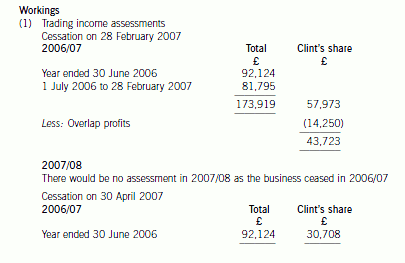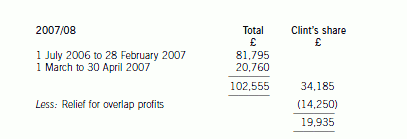快看!了解关于ACCA有年费吗?年费是多少呢?赶紧看看!
发布时间:2020-05-14
对于ACCA需要交年费而言,需要交的年费是多少呢?这些问题有多少人了解呢?接下来我们一起来看看吧!
对于很多考生在学习ACCA的时候,经常会收到ACCA官方所发来的邮件。有一次,一个小伙伴收到了ACCA官方发送的让他缴纳ACCA年费的邮件。
这位ACCA新手小白还以为是伪造的邮件, 差点错过了ACCA的年费缴纳。
根据ACCA官方规定,所有报考ACCA的学员,以及通过考试的ACCA会员,每年都需要缴纳对应不同额度的费用,这个费用就是ACCA年费,也叫ACCA会员费。
ACCA年费是要缴纳终身的,在你没有正式成为ACCA会员之前交的是ACCA学员的年费,成为ACCA会员之后交的是ACCA会员的年费。
ACCA规定,在每年5月10日之前注册ACCA/FIA的学员,需要缴纳当年的年费,之后注册的学员免除当年年费。因此,对于我们的学员,如果不急于ACCA考试,可以选择在5月10日之后注册。
根据ACCA官网最新公布,2020年报考ACCA的学员,需要缴纳的年费是112英镑,请广大ACCA学员及时检查自己的收件箱,避免错过年费缴纳窗口。
由于ACCA被称为“国际注册会计师”,考出ACCA后有很大可能去外企做财务,或者去四大做审计,这些与会计非常相关的职位, 都可以被统称为会计人。
如果作为会计人的ACCAer如何才能够理论与实际相结合,成为职场中最受欢迎的会计人、老板最喜欢的会计从业者呢?
下面就来看看有以下几点:
经验丰富,证书齐全的会计作为一个会计人,仅仅掌握现代会计、财务、税法、金融
财政等知识是不够的,实践工作经验有时候要比书本知识更重要。
专业能力过硬,才能更好的开展工作。众所周知,会计类证书也是非常多的, 从事会计行业也就意味着需要终身学习。
此时ACCA的重要性也就凸显了出来,ACCA没有很高的准入门槛, 也不需要你曾经接触过财会行业,只要你有一颗努力上进的心,勇敢的坚持下去,你定会守得云开见月明。
学习ACCA后,你对财会行业以及财会相关知识已经有了一个较为深入的了解,再去考取其他的会计证书,如CPA等,就会非常的有优势了。
工作踏实细心、老实听话的会计听话的会计,不是指老板说什么就是什么、来讨好老板的一类人,而是指懂得分析形势、做出自己的判断,为公司创造尽可能多的价值。由于会计人天天与金钱打交道,这就要求他们具备优良的个人操守。
以上就是关于考试的全部内容了,如果想要了解更多关于考试的信息,大家可以来关注51题库考试学习网哦,51题库考试学习网每天会为大家更新和考试相关的内容的。
下面小编为大家准备了 ACCA考试 的相关考题,供大家学习参考。
(ii) Analyse the effect of delaying the sale of the business of the Stiletto Partnership to Razor Ltd until
30 April 2007 on Clint’s income tax and national insurance position.
You are not required to prepare detailed calculations of his income tax or national insurance liabilities.
(4 marks)
(ii) The implications of delaying the sale of the business
The implications of delaying the sale of the business until 30 April would have been as follows:
– Clint would have received an additional two months of profits amounting to £6,920 (£20,760 x 1/3).
– Clint’s trading income in 2006/07 would have been reduced by £13,015 (£43,723 – £30,708), much of which
would have been subject to income tax at 40%. His additional trading income in 2007/08 of £19,935 would all
have been taxed at 10% and 22%.
– Clint is entitled to the personal age allowance of £7,280 in both years. However, it is abated by £1 for every £2
by which his total income exceeds £20,100. Once Clint’s total income exceeds £24,590 (£20,100 + ((£7,280
– £5,035) x 2)), his personal allowance will be reduced to the standard amount of £5,035. Accordingly, the
increased personal allowance would not be available in 2006/07 regardless of the year in which the business was
sold. It is available in 2007/08 (although part of it is wasted) but would not have been if the sale of the business
had been delayed.
– Clint’s class 4 national insurance contributions in 2006/07 would have been reduced due to the fall in the level
of his trading income. However, much of the saving would be at 1% only. Clint is not liable to class 4 national
insurance contributions in 2007/08 as he is 65 at the start of the year.
– Changing the date on which the business was sold would have had no effect on Clint’s class 2 liability as he is
not required to make class 2 contributions once he is 65 years old.


(d) Calculate the ex dividend share price predicted by the dividend growth model and discuss the company’s
view that share price growth of at least 8% per year would result from expanding into the retail camera
market. Assume a cost of equity capital of 11% per year. (6 marks)
(d) The dividend growth model calculates the ex div share price from knowledge of the cost of equity capital, the expected growth
rate in dividends and the current dividend per share (or next year’s dividend per share). Using the formula given in the
formulae sheet, the dividend growth rate expected by the company of 8% per year and the decreased dividend of 7·5p per
share:
Share price = (7·5 x 1·08)/(0·11 – 0·08) = 270p or £2·70
This is the same as the share price prior to the announcement (£2·70) and so if dividend growth of 8% per year is achieved,
the dividend growth model forecasts zero share price growth. The share price growth claim made by the company regarding
expansion into the retail camera market cannot therefore be substantiated.
In fact, a lower future share price of £2·49 was predicted by applying the current price-earnings ratio to the earnings per
share resulting from the proposed expansion. If this estimate is correct, a fall in share price of 7% can be expected.
The share price predicted by the dividend growth model of £2·70 would require an after-tax return on the proposed expansion
of 11·66%, which is more than the 9% predicted by the Board. The current return on shareholders’ funds is 7·5% (4·5/60),
but in 2005 it was 12·8% (7·3/57), so 11·66% may be achievable, but looks unlikely.
Since the market price fell from £2·70 to £2·45 following the announcement, it appears that the market does not believe
that the forecast dividend growth can be achieved.
(b) As a newly-qualified Chartered Certified Accountant, you have been asked to write an ‘ethics column’ for a trainee
accountant magazine. In particular, you have been asked to draft guidance on the following questions addressed
to the magazine’s helpline:
(i) What gifts or hospitality are acceptable and when do they become an inducement? (5 marks)
Required:
For each of the three questions, explain the threats to objectivity that may arise and the safeguards that
should be available to manage them to an acceptable level.
NOTE: The mark allocation is shown against each of the three questions above.
(b) Draft guidance
(i) Gifts and hospitality
Gifts and hospitality may be offered as an inducement i.e. to unduly influence actions or decisions, encourage illegal or
dishonest behaviour or to obtain confidential information. An offer of gifts and/or hospitality from a client ordinarily gives
rise to threats to compliance with the fundamental principles, for example:
■ self-interest threats to objectivity and/or confidentiality may be created if a gift from a client is accepted;
■ intimidation threats to objectivity and/or confidentiality may arise through the possibility of such offers being made
public and damaging the reputation of the professional accountant (or close family member).
The significance of such threats will depend on the nature, value and intent behind the offer. There may be no significant
threat to compliance with the fundamental principles if a reasonable and informed third party would consider gifts and
hospitality to be clearly insignificant. For example, if the offer of gifts or hospitality is made in the normal course of
business without the specific intent to influence decision making or to obtain information.
If evaluated threats are other than clearly insignificant, safeguards should be considered and applied as necessary to
eliminate them or reduce them to an acceptable level.
Offers of gifts and hospitality should not be accepted if the threats cannot be eliminated or reduced to an acceptable
level through the application of safeguards.
As the real or apparent threats to compliance with the fundamental principles do not merely arise from acceptance of
an inducement but, sometimes, merely from the fact of the offer having been made, additional safeguards should be
adopted. For example:
■ immediately informing higher levels of management or those charged with governance that an inducement has
been offered;
■ informing third parties (e.g. a professional body) of the offer (after seeking legal advice);
■ advising immediate or close family members of relevant threats and safeguards where they are potentially in
positions that might result in offers of inducements (e.g. as a result of their employment situation); and
■ informing higher levels of management or those charged with governance where immediate or close family
members are employed by competitors or potential suppliers of that organisation.
声明:本文内容由互联网用户自发贡献自行上传,本网站不拥有所有权,未作人工编辑处理,也不承担相关法律责任。如果您发现有涉嫌版权的内容,欢迎发送邮件至:contact@51tk.com 进行举报,并提供相关证据,工作人员会在5个工作日内联系你,一经查实,本站将立刻删除涉嫌侵权内容。
- 2020-01-09
- 2020-02-18
- 2020-01-09
- 2020-01-09
- 2020-03-11
- 2020-01-10
- 2020-01-10
- 2020-05-16
- 2020-05-07
- 2019-07-20
- 2020-03-27
- 2020-01-10
- 2020-01-10
- 2020-01-10
- 2020-01-02
- 2020-01-09
- 2020-01-09
- 2020-02-18
- 2020-04-15
- 2020-01-10
- 2020-01-10
- 2020-01-10
- 2020-01-09
- 2020-03-07
- 2021-05-08
- 2020-01-10
- 2020-04-23
- 2020-01-10
- 2019-07-20
- 2020-01-10